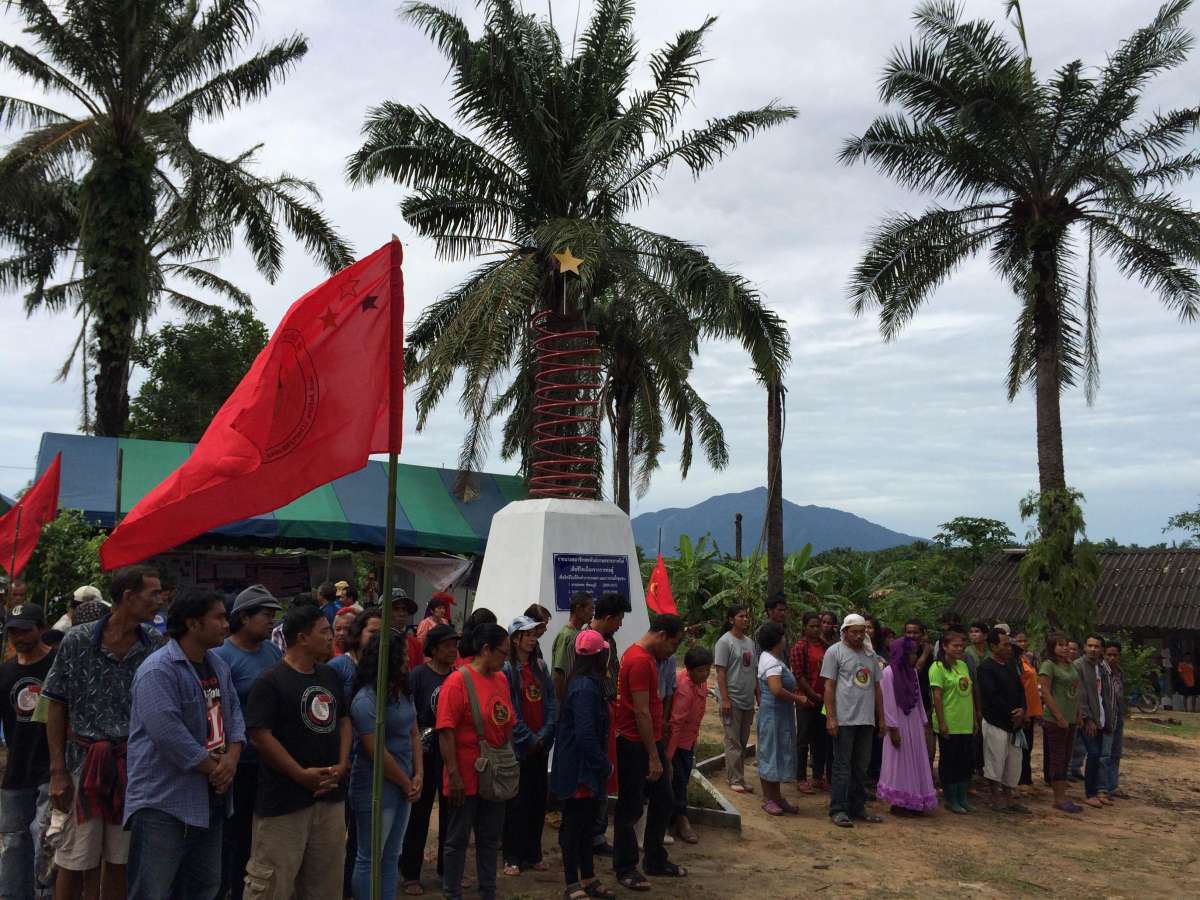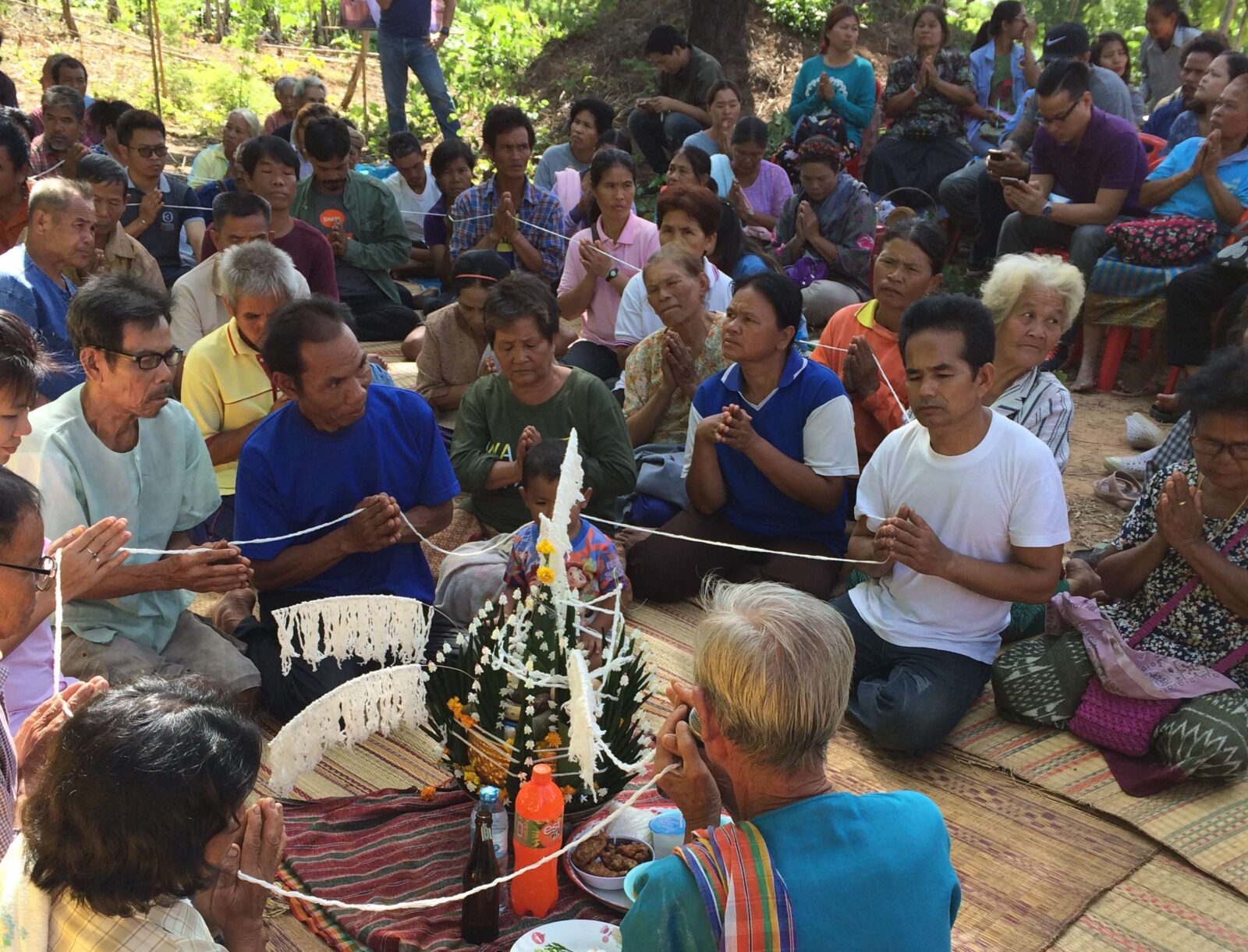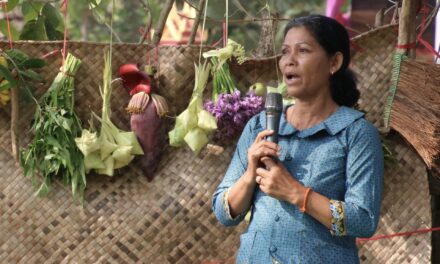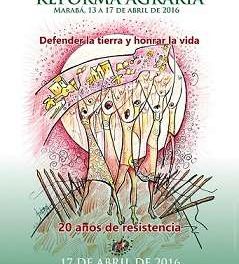Since the implementation of the Forestry Master Plan (FMP) by the military government in 2014, the struggles of landless villagers, indigenous peoples, urban and rural poor, and frontline communities have often been met with violence in the form of physical attacks, killings, enforced disappearance, burning and destruction of houses and property, “mandatory attitude adjustment,” and the use of SLAPP[1] against activists and community members.
The FMP along with other so-called legal instruments to put an end to forest destruction, trespassing on public land, and to improve sustainable management of natural resources have in fact only allowed an army-led operation against alleged encroachers, who in reality were communities long residing and depending on these lands.
According to the report from a unit of the military itself, the Internal Security Operation Command (ISOC), from June 2014 to February 2015, more than 1,000 people were arrested and prosecuted for illegal logging and encroachment. Although there has been no clear figure as to how many of those arrested were large scale landlords or big corporations, testimonies have shown that the majority of those arrested were poor farmers, marginalized and landless people. Human rights violations have been committed in the name of this plan and the perpetrators have rarely been brought to justice.
Meanwhile, investors in dispute with villagers over these lands have seized the opportunity to use force against local people to evict them from the contested areas. In the case of a sea gypsy community in Phuket, they were attacked and ambushed several times, at night and daytime, by private security forces that were known to be connected to a resort. These attacks have led to a number of local people being seriously injured and personal properties being destroyed. The sea gypsies have filed a case before responsible authorities, but the process of investigation has to this date not made much progress.
Policies on land have often come with the promise to provide land access and ownership to landless and the poor communities. However, these promises have rarely been fulfilled, and instead, these poor families are placed at even greater risk of losing the land. The process of expropriation and forced eviction is justified by so called “development” for national interests and have been fully captured by the corporate and elite.
In Chaiyaphum province, northeast Thailand, local authorities had notified at least eight communities to move out from the disputed lands since the introduction of the plan. The communities resisted and asserted their rights to remain in the land until the dispute would be resolved. Villagers coming together to unite in the collective struggle have been seen as a threat by the state officials. According to villagers, local government officials have been trying to break community cohesion through manipulation and the creation of distrust among the villagers by spreading false information. The leaders of the community have been threatened and followed, and local authorities have monitored collective activities.
Despite the challenges and threats to them, the shared perspectives and frustrations of injustice that prevail in society have brought land rights defenders, student movements, urban and rural poor movements, academics and other progressive groups together. While individual struggle is still being pursued, synergies for collective actions are also constantly being built.

The Struggle of Land Rights Defenders
On April 16, 2016, a known land rights defender, Den Kamlae, was forcibly disappeared. The family and villagers believed that local officials had been involved in Mr. Den’s disappearance because of his activism and involvement in the community’s dispute with the national park department on land issues. Mr. Den’s disappearance reflects the current situation of land and environmental right defenders who continue to face threats, even as the culture of impunity prevails in Thailand.
From their testimonies, frontline communities, social movements, and land rights defenders have expressed that they no longer see land rights as separate from the issue of investment and development policies which are designed to benefit corporations and economic-political elite, at the cost of people’s lives and the destruction of the ecosystem, especially under the current military government. For them, the struggle for land rights is a struggle for democracy, and a struggle for development that respects local peoples’ rights and dignity as well as nature.
In response to the struggle for land rights, the military government has adopted different strategies to curb the rights and freedom of people, including their freedom of expression and assembly, and the right to participate in decision-making processes. The shrinking of public space and criminalization of dissent are challenges not only faced by land rights defenders, but also by student movements, progressive academics, labor groups, and journalists.
They have been arrested and subjected to mandatory attitude adjustment. Many of them have been prosecuted in the military court, instead of the civilian court, which has raised concerns about people’s basic rights and the transparency of the judicial process. Many from the media have been threatened and journalists were banned from traveling abroad. In many cases, the military government has attempted to silence criticism of scholars by asserting pressure on their institutions to stop and ban academic forums and meetings.
The structure of power that exists—based on a form of inegalitarianism that breeds injustices—is the target of the collective struggle. To shift to a structure that respects rights and dignity, and allows the voices of the poor and marginalized people to be heard, requires not only collective aspiration and concerted effort, but efficient strategies that are able to address root causes while protecting human rights defenders. For this to materialize, domestic and international solidarities are crucial and need to be mobilized to strengthen and enhance continuous struggle amidst challenge.
The Southern Peasants Federation have also been at the forefront of support to the struggles of these communities. Last year, it issued a statement on the occasion of World Habitat Day in October, to demand for the following:
- Government must recognize and protect the rights of peasant and community to collective land ownership and management for sustainable and stability, and for their new settlement.
- Government must recognize and protect the right of landless peasants, labors and the poor to assemble and establish new community and to construct secured housing in state owned land that appropriate for agriculture that encroached and illegally occupied by capitalists, companies and etc. Community rights and community land titling must be respected.
- Government must thoroughly and justly provide habitat for every citizen in the country.
Government must provide appropriate compensation to the populations affected by government’s development projects and policies.
[1] SLAPP stands for Strategic Lawsuit Against Public Participation. The plaintiff is not aimed to win the legal case but to generate fear and intimidate defendant to silence their criticisms and to stop their resistance. It is often used by the corporate and the state against activists and social movements who resist against destructive investment and development projects.










